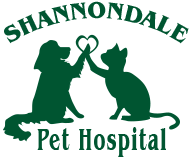Educational Articles
-
Cimetidine is given by mouth and is used off label in cats, dogs, small mammals and horses to treat various gastrointestinal conditions related to acid production, such as ulcers and reflux. Side effects are uncommon and have not been documented in animals. Do not use in pets that are allergic to it or other histamine2 blockers.
-
Ciprofloxacin ophthalmic (brand name Ciloxan(R)) is an antibacterial agent used in the treatment of eye infections in dogs and cats. Its use in dogs and cats is off label or extra label. This medication should not be used in dogs that are allergic to quinolones. Some medications may interact with ciprofloxacin, so it is important to tell your veterinarian about any medications that your pet is taking. If a negative reaction occurs, please call your veterinary office.
-
Ciprofloxacin is a systemic fluoroquinolone antibiotic used to treat bacterial infections. It is often given by mouth, but an injectable form is also available. The most common side effect is gastrointestinal distress, but other side effects are possible. It is contraindicated in young or dehydrated pets, or in pets with liver or kidney disease. It should not be the first-choice fluoroquinolone for veterinary patients.
-
Cisapride is used off label and is given by mouth to treat gastrointestinal motility disorders in cats, dogs, and small mammals. Common side effects include vomiting, diarrhea, and abdominal discomfort. Do not use in pets that are allergic to it or in pets with conditions that would be made worse by increased intestinal movement. If a negative reaction occurs, please call your veterinary office.
-
Cisplatin is a chemotherapy drug used to treat various forms of cancer and solid tumors in animals. It is prescribed off-label for use in dogs, horses, birds, and reptiles. It should not be used in cats due to potentially fatal side effects. Cisplatin is administered by injection, typically IV into the vein, by trained veterinary staff.
-
Clarithromycin is given by mouth and used off label to treat certain bacterial infections in several animal species. Do not use in pets that are allergic to it or other macrolide antibiotics, in rabbits, gerbils, guinea pigs, hamsters, or horses more than four months old.
-
Clindamycin is an antibiotic used to treat a range of bacterial infections in dogs and cats. It is often used to treat wounds, pyoderma, abscesses, bone and dental infections, and toxoplasmosis. Its use to treat certain infections, such as toxoplasmosis, is off label or extra-label. Clindamycin is available in oral liquid, tablets, and capsules. It has a very bitter taste, so you may need to disguise the medication in food. It is important to never give a cat a dry pill, if using capsules or tablets, as it can damage the esophagus, the muscular tube that delivers food from the mouth to the stomach (esophagitis). If you suspect an overdose or an adverse reaction to the medication, call your veterinary office immediately.
-
Clindamycin topical (brand names ClinzGard®, others) is an antimicrobial used to treat bacterial skin infections, acne, anal sac abscesses, and other wounds in cats and dogs. Clindamycin topical comes in variety of forms.
-
Clomipramine is given by mouth and is used on and off label to treat behavior disorders such as obsessive-compulsive disorders, anxiety, aggression, and urine marking. In cats, it is used for urine spraying, and in birds, it is used to treat feather picking.
-
Clonazepam is given by mouth and is used off label to treat seizures and certain behavioral disorders in dogs and cats. Common side effects include sleepiness, incoordination, drooling, excitement, or increased appetite.


